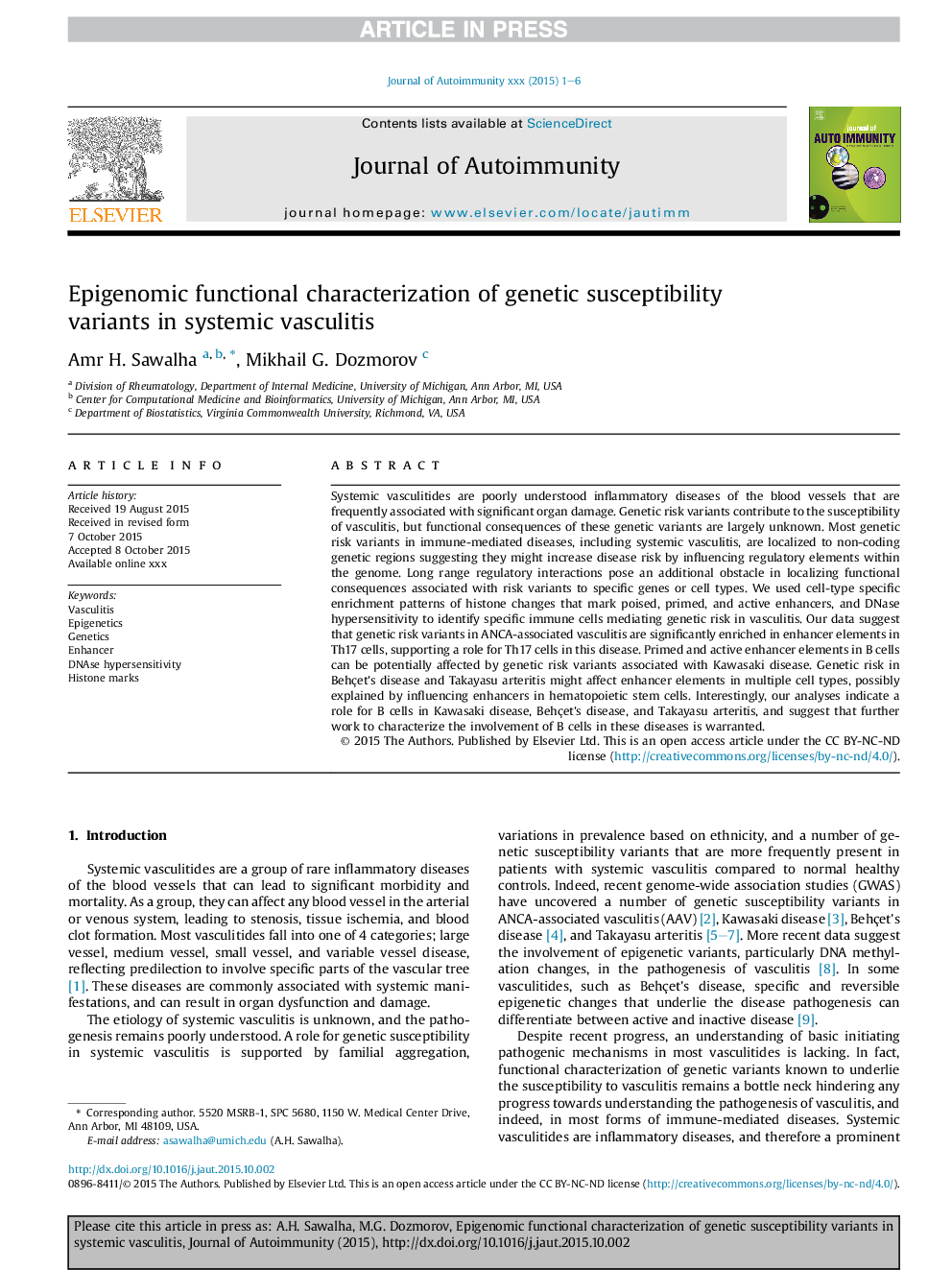| Article ID | Journal | Published Year | Pages | File Type |
|---|---|---|---|---|
| 6119187 | Journal of Autoimmunity | 2016 | 6 Pages |
Abstract
Systemic vasculitides are poorly understood inflammatory diseases of the blood vessels that are frequently associated with significant organ damage. Genetic risk variants contribute to the susceptibility of vasculitis, but functional consequences of these genetic variants are largely unknown. Most genetic risk variants in immune-mediated diseases, including systemic vasculitis, are localized to non-coding genetic regions suggesting they might increase disease risk by influencing regulatory elements within the genome. Long range regulatory interactions pose an additional obstacle in localizing functional consequences associated with risk variants to specific genes or cell types. We used cell-type specific enrichment patterns of histone changes that mark poised, primed, and active enhancers, and DNase hypersensitivity to identify specific immune cells mediating genetic risk in vasculitis. Our data suggest that genetic risk variants in ANCA-associated vasculitis are significantly enriched in enhancer elements in Th17 cells, supporting a role for Th17 cells in this disease. Primed and active enhancer elements in B cells can be potentially affected by genetic risk variants associated with Kawasaki disease. Genetic risk in Behçet's disease and Takayasu arteritis might affect enhancer elements in multiple cell types, possibly explained by influencing enhancers in hematopoietic stem cells. Interestingly, our analyses indicate a role for B cells in Kawasaki disease, Behçet's disease, and Takayasu arteritis, and suggest that further work to characterize the involvement of B cells in these diseases is warranted.
Related Topics
Life Sciences
Immunology and Microbiology
Immunology
Authors
Amr H. Sawalha, Mikhail G. Dozmorov,
